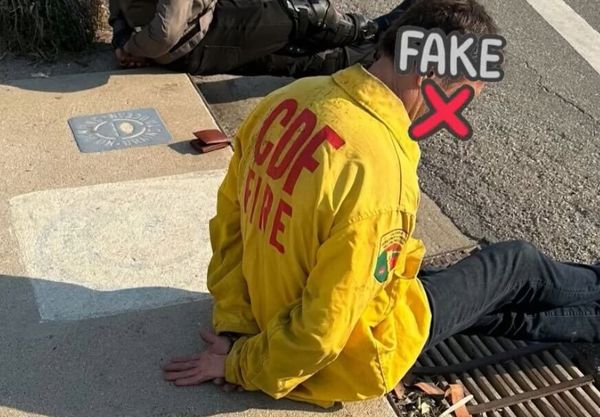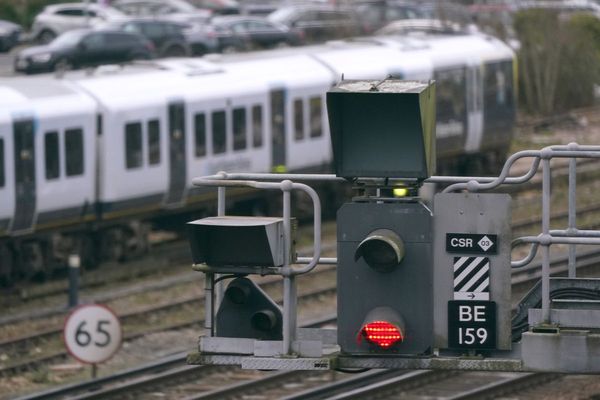
With the infamous cry “Lock her up!” outgoing U.S. President Donald Trump’s supporters have long called for the prosecution of Hillary Clinton for crimes she allegedly committed as secretary of state under the Obama administration and as a presidential candidate. Last year Trump himself was impeached, and afterward he demanded to investigate the investigators. He has since ordered criminal inquiries into his campaign rival Joe Biden and Biden’s son Hunter. Now, in the wake of the election and Biden’s victory, the prospect of holding Trump and his staff accountable for their own misdeeds may seem like the next turn in a loop-the-loop of political prosecutions.
But as much as Americans may like to move on, it’s important to recognize the depth of the Trump administration’s corruption and malfeasance. Trump entered office uniquely compromised by financial conflicts of interest. He will leave office after running an intimidation campaign against state officials that aimed to disenfranchise hundreds of thousands of voters. Worst of all, the administration has spread fatal disinformation about the COVID-19 pandemic. Today, about as many Americans die each day of this disease than were killed in the 9/11 terrorist attacks. Trump’s own White House events and indoor campaign rallies have violated local public health decrees and knowingly caused the infection of numerous attendees. The administration’s distortion of health information and encouragement of vigilante action against state officials who enforced mask mandates could even amount to reckless endangerment.
Trump is already making moves to protect himself and his family from criminal liability. But what about officials who worked in his administration further down the bureaucratic ladder? The German-American philosopher Hannah Arendt offers a useful reference point for thinking about issues of complicity, resistance, and “just following orders” under corrupt regimes. She argues that the erosion of democratic institutions and criminal acts at the state level are made possible by a combination of fanatical leaders, mass consent, and bureaucratic apparatuses that deflect responsibility. In the interest of justice, government officials must be judged and held accountable—not as symbolic representatives of a regime but for their particular roles in abuses of power and state crimes.
Arendt’s focus on the individual actions of bureaucrats (most infamously those of Adolf Eichmann during the Holocaust) is relevant in light of both the Trump administration’s efforts to undermine democracy and its attempts to suppress and distort information about public health. How should Americans treat appointees who were serving in their positions in violation of the law because they were never approved by Congress? Or immigration officers who disregarded a federal judge’s order to restore the Deferred Action for Childhood Arrivals program and enforced family separation at the U.S.-Mexico border? Or members of the Republican Party who have weaponized conspiracy theories about voter fraud in order to intimidate officials into denying the results of free and fair elections?
In her 1967 essay “Truth and Politics,” Arendt noted that organized lying can serve as a kind of political violence that completely reshapes “the whole factual texture” of society. She wrote that one key symptom of a broken democracy is “a peculiar kind of cynicism—an absolute refusal to believe in the truth of anything, no matter how well this truth may be established.” For her, the survival of democracy depends in part on the independence of the judiciary and other public institutions whose mission it is to seek information with some degree of freedom from political pressure. Paradoxically, it is always a political decision to support such institutions. Thus, the boundary between partisanship, the law, and disinterested research for the public good is fragile and subject to contestation. But that boundary can’t be dissolved totally without destroying the formal basis for democracy, be it liberal democracy or a more robust social democracy.
Arendt had occasion to comment on this contested boundary in 1971 after the release of the Pentagon Papers. This act of resistance by the intelligence analyst Daniel Ellsberg shattered the “internal self-deception,” as he called it, of the Kennedy and Johnson administrations with regard to their conduct of the war in Vietnam. For those who lied about the reality of the war, “Defactualization,” as Arendt called it in her essay “Lying in Politics: Reflections on The Pentagon Papers,” was “welcomed because disregard of reality was inherent in the policies and goals themselves.” Officials falsified statistics and deceived the public in order to indulge the U.S. military and intelligence community’s hubris about winning an unwinnable war.
Organized lying, cynicism, and a total dissolution of the fluid boundary between partisanship and disinterested government: These are clear and present dangers to democracy, Arendt warned. Today, Trump and the Republican Party’s refusal to recognize the validity of the election results as well as the horrific toll of COVID-19 (not to mention the existential threat of climate change) have threatened to make party loyalty the arbiter of reality itself. To those who succumb to that cynicism, bureaucratic agencies such as the National Institutes of Health or the Centers for Disease Control and Prevention, which are supposed to operate with a degree of independence, appear as the deep state. It becomes impossible to conceive of any administrative independence that is not partisan and conspiratorial.
A deep state does exist, of course, but not in the insane form imagined by Trump or QAnon followers. Instead it refers to the array of minor bureaucrats and low-level appointees whose work depends on society maintaining contested boundaries between partisan loyalty, official duty, and the law. Tending these boundaries is not sufficient for a democratic society, but it is necessary. Whether or not members of the Trump administration will be subject to professional discipline or legal action, the recent election has made one thing clear about the American democratic state: The individual choices of even minor bureaucrats matter. Ultimately the certification and defense of the election results has come down to decisions made not only by the courts but also by a small number of low-profile officials, such as the Board of Canvassers in Wayne County, Michigan, and Georgia’s voting system implementation manager. Particularly in Georgia, those Republicans who have stood up to intense and unprecedented pressure from within their own party should be commended for their integrity. But it is also deeply unsettling that the choice to uphold a democratic election finally lay in their hands, not those of the voters.
Over the past four years, bureaucrats who have acted honorably under a presidency that is not only ideologically distasteful but also potentially criminal have simply been fired by Trump. Within the government, acts of resistance that merit the name have involved people speaking out publicly, non-anonymously, and at risk of losing their jobs. Getting denounced by Trump is perhaps the only badge of honor that some of these officials may wear.
Just as it is important to recognize officials who have stood their ground to expose government abuses and stop the circulation of disinformation, Americans shouldn’t ignore the many acts of complicity that increased the misery of the pandemic and brought their country to the brink of another stolen election. We must share Arendt’s insistence on ascertaining the individual responsibility of bureaucrats and holding them accountable. If Trump officials did commit crimes or abuse their power, they must either be prosecuted or professionally disciplined. The more time it takes to investigate any evidence of wrongdoing, the more we risk losing the factual record itself. It’s not automatic that the basic facts of what happened under the Trump administration will persist in history. This kind of political record, Arendt thought, is particularly vulnerable to erasure. Trump’s habit of ripping up every piece of paper that comes into his hands in the White House, even as workers desperately piece them back together for the National Archives, is a caricature of this real risk.
Of course, setting the record straight and holding officials accountable when it’s clear they have abused their power or even committed criminal offenses won’t be enough to restore fundamental confidence in government that this administration has eroded. The loss of transparency in governmental decision-making, the expansion of unaccountable national security agencies, the hobbling of all other agencies, the paralysis of Congress: These processes began well before Trump’s presidency, although their acceleration over the past four years is stunning. The strategist and media operator Steve Bannon fell out of Trump’s good graces several years ago, but his right-wing libertarian project aiming for the “deconstruction of the administrative state” has continued to guide this administration.
Though weakened by deeply partisan appointments, the judiciary and elections officials have stopped Trump and his allies from stealing the Presidency. The levee didn’t break, this time. But we shouldn’t put total faith in the permanence of our democracy’s institutions. Seventy-four million Americans who exercised their right to vote this year chose an authoritarian conspiracy-monger who encourages racist paramilitary groups and has fatally mismanaged a vast public health crisis. It’s possible that we’ve only seen a preview of a more successful version of American fascism still to come. To avoid that scenario, a long-term process of cultural reckoning and thoroughgoing democratization must address the myriad forces that enabled Trumpism—a process that in the end goes far beyond questions of bureaucratic accountability.







